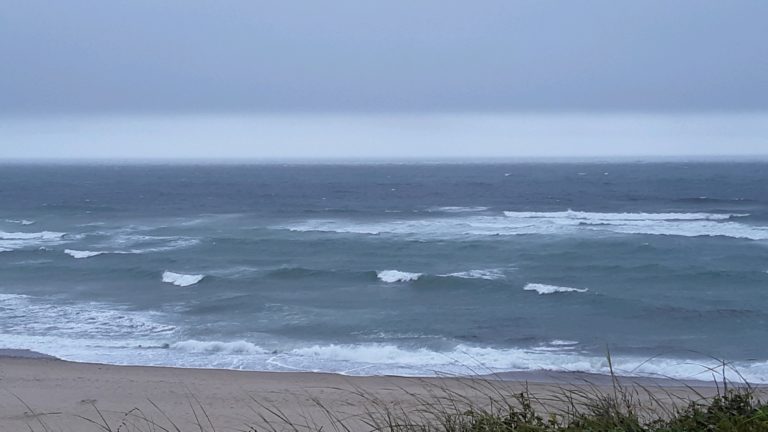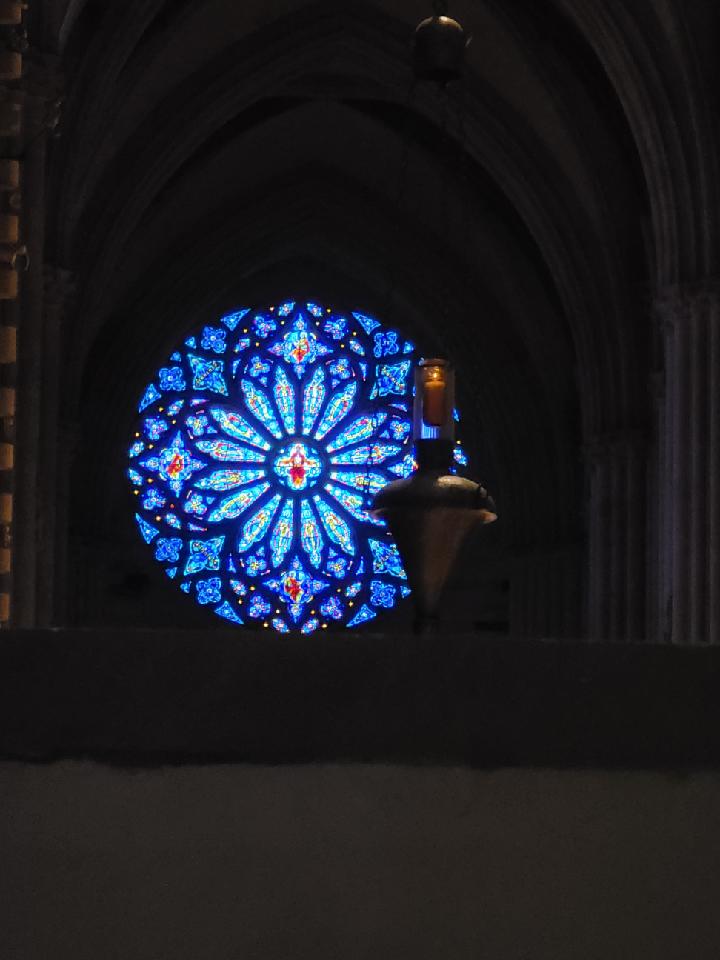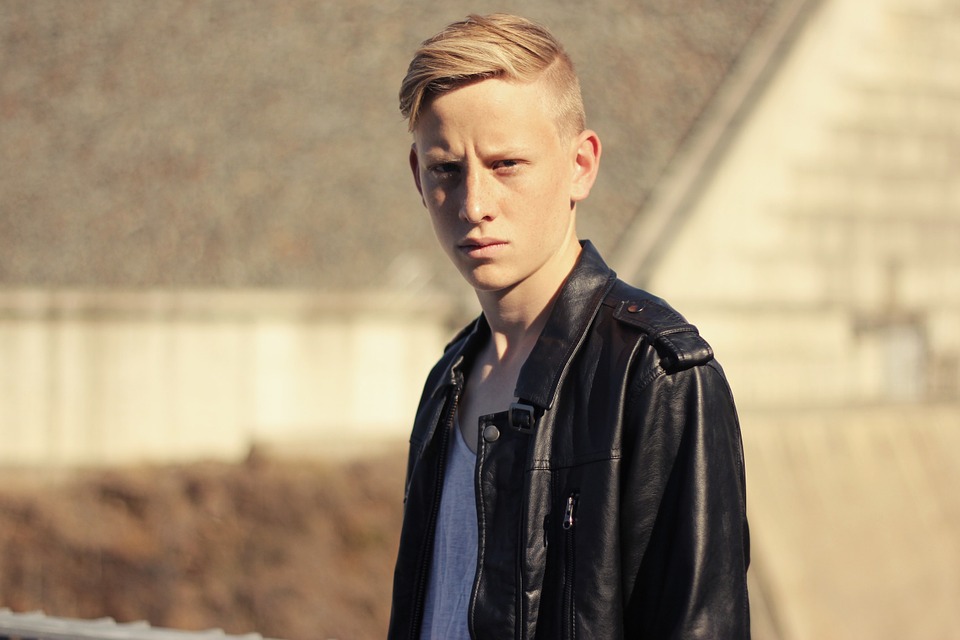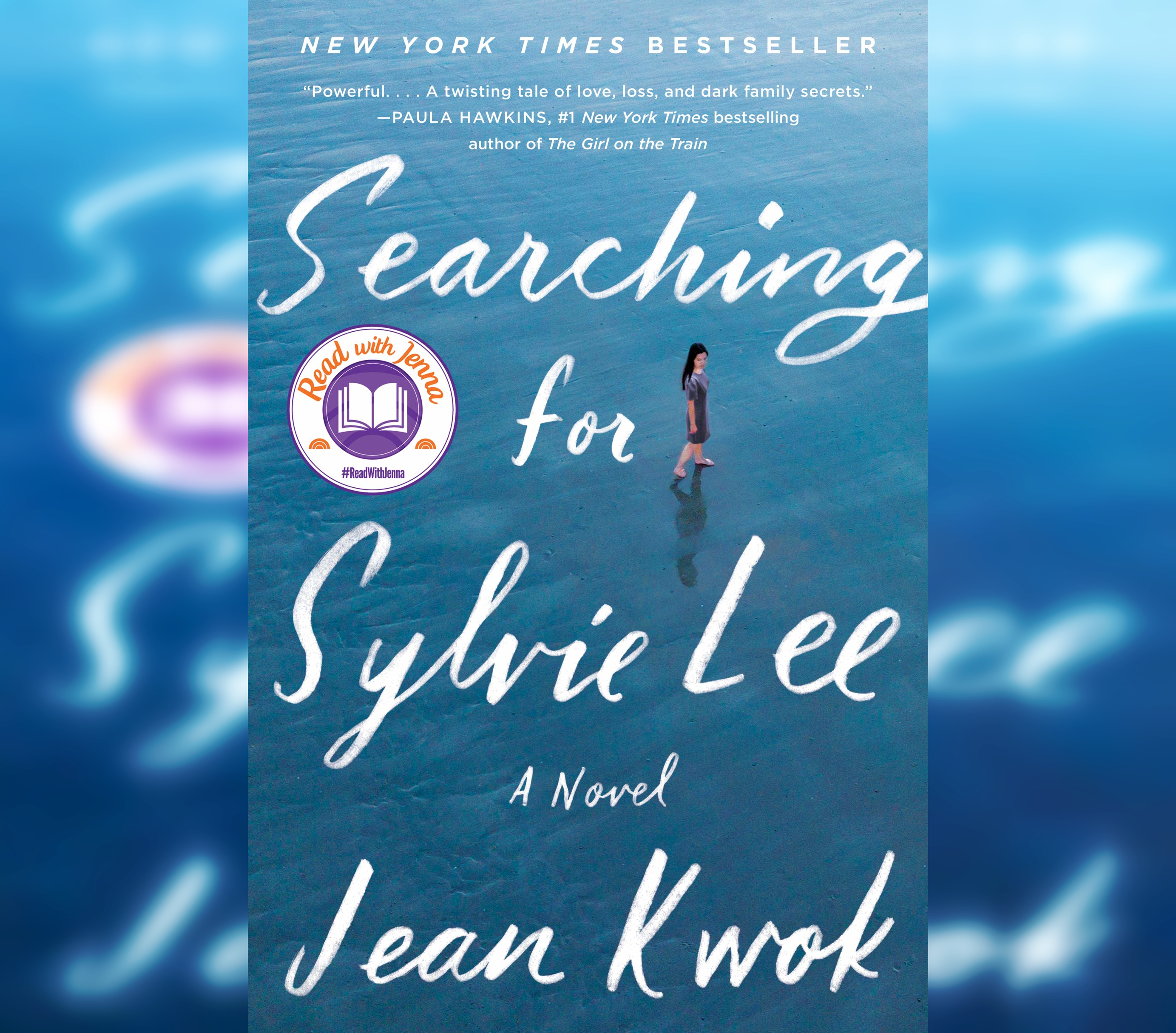In Tiphanie Yanique’s story, “A Sense of Things,” which appeared in Columbia Journal in 2013, love is always already lost. Set in 1950, the story alternatingly inhabits the consciousnesses of Jacob and Anette, two lovers from the island of St. Thomas who are temporarily apart. Jacob is abroad in the US studying to be a pediatrician. Unlike Penelope, that other lonely and loving island dweller of literature, Anette quietly abandons Jacob for Franky, a firefighter with whom she is not in love, but who at least is in the same country. Anette and Franky appear in a movie together; Jacob sees the poster and books a flight home. Thus, the catalyst of this love-triangle story is a reproduced screen-image, an object in circulation: a stand-in for the way partnership itself is circulated among Yanique’s characters.—
Anette and Franky possess the object of love but not the thing itself; Anette and Jacob are in love but cannot manifest it. Ultimately in “A Sense of Things,” if marriage is anything it’s a material thing and decidedly not an ideal. In other words, it confirms what the reader senses as the inevitable from the start, but through the artifice of narrative it reminds us that, in moments of romantic heedlessness—moments in which the story unapologetically indulges—we wish we could correct the course of the inevitable in favor of the romantic.
If the story is maddeningly indecisive on the question of what constitutes a lasting partnership, we might forgive it if we read its zig-zagging as a perpetually renewed belief in beginnings. At the climactic moment of unrequited love, Jacob waits for Anette on the beach, looking out at the dark ocean: “He wanted him and Anette to begin again, both looking out at the sea. He didn’t know what they would do after. He believed that if she touched him he would know everything.” Ultimately the story is a blunt portrait of desire and betrayal. It’s set in 1950, but its themes, sentiments, and settings are as timeless as Homeric verse.
A Sense of Things
Tiphanie Yanique
1950
Jacob McKenzie hadn’t just disappeared and left Anette unwed and with child. He’d gone to medical school in Virginia. If he was going to be a pediatrician he would have to get through medical school and the years of specialization with focus. No women. No movie theatres. No hanging at the speakeasies. Only child skulls. Baby intestines. The soup of an adolescent cough. These were his foci. And, of course, Anette and baby Eve. He was going back to them. No nurse, no lady doctor could move his mind. Just “be a doctor.” One day—husband and father.
He did not write to Anette back home on the island. Writing would make it longer. Writing would be “I miss you.” Writing might be “the love is fading:’ He didn’t write Anette or anybody. Instead, he wound a single rubber band around his marital finger and imagined that Anette did the same. Not hoped. Just imagined.
Then one day he swore he’d seen Anette’s face on a movie poster through a window of one of those neighborhoods he had too much focus to spend much time in. He stared at the poster Girls are for Loving, and decided that it could not be Anette. Despite the familiar fabric of the dress and the familiar face of the woman. No, that was not the Virgin Islands. Not on that poster and not in that movie.
Still, the movie poster churned him enough that he broke down and wrote just a quick note to his brother to check on Anette and the baby for him the next time he landed in St. Thomas. Saul, an airplane steward who traveled often, wrote back to him: “Anette engaged to be marry. How you ain hear?”
In St. Thomas Anette and Franky had become celebrities. The movie posters were plastered around the island. “Girls are for Loving” was written in red. And below the words was the scene at the dance over at the Gull Reef Club. And there was Anette and Franky, on the poster like they were the stars. They took up more than half of the poster. Never mind that Anette’s dress was flying a little too much. Never mind that her skin was lightened up so she looked very much like a white woman and that Franky’s skin was darkened and his green eyes seemed too green. They were the stars! They were making the Virgin Islands known!
The newspaper interviewed them and asked when they were getting married. Anette, her ring finger glinting, held Franky’s hand and said, “Soon.” Franky was a good man. A fine man, really. He was taking care of his old mother who had hair on her chin. Giving money to his past girl friend to support the children he never really knew. Anette was being a lady-like sister Eeona wanted. No thoughtless thing like with her first husband Ronnie. No loveful thing like with her non-husband Jacob. She had children to consider.
Franky had been giving Anette a ride on the days she volunteered as a history aid at the public school. On the morning the interview was printed, Franky waited until she got into the car and then laid a copy of the news paper in her lap. On the cover of the paper was a picture of them holding hands. Her engagement ring shining right there on the front page.
On the ride to school Franky swore to build her a living room set and an entire house, one she could live in, with his own hands. And he swore to build a family with her. And he said, “I been waiting to hold onto you since we was children.”
And this last thing was all it took really. Because Ronnie, her first husband, hadn’t been able to hold onto to her for half that long. And because Jacob, her first love, hadn’t wanted to hold on at all.
Anette spent the three hours grading sixth though eighth grade his tory quizzes and tests. She stood three times to go atop the school stairs and look into the harbor to see if Jacob had arrived without her sensing it. When the bell rang for lunch, her grading was over and Franky was there waiting to pick her up.
Anette stood at the top of the school stairs to take in her final breaths and then she walked down. “Let we do it this Saturday,” she said. But Franky, who had a sense of timing, said, “Let we do it today.”
“But I don’t have no dress;’ she said looking around and noticing that a few of the teachers walking passed were making a big show of pretending not to listen.
“Well, the stores don’t close until five and the court don’t close until six.”
And Anette, with no time to sense the arrival that was coming because it wasn’t yet coming, said, “Well, why not, then.”
So that very evening Anette married Franky in a respectable blue dress. Green was his color but blue was hers and she wanted a color that made this about her. At the courthouse, she closed her eyes when the judge asked if anyone objected. When she opened them she saw only Franky and looking into his eyes she saw only him loving her and only him staying by her side.
Franky was a man who would build a house. A man who would care for the girls. A fireman. Jacob McKenzie had not come floating in. Well, then he was barely a man at all.
Sister Eeona did not like Franky for Anette, but no one had consulted Eeona. Besides, Anette had two children! She was lucky to find a man at all. That week Anette moved in with Franky in his modest two bedroom flat. He had moved out of his parents’ house long before it was typical for V.I. men to do such things.
Sister Eeona stayed alone in the small one bedroom apartment.
Now that Anette was remarried, there was no moral obstacle and within the week Anette was called into the principal’s office and told that a teaching position would be available for her in summer school. And if she stayed married, there would be something permanent when school opened in September.
Franky started looking for land where he would build a big strong house to keep his promise. But before Franky could build the house and before Anette could become a teacher, some other things arrived. First, there was Jacob McKenzie.
It took one month to gather the money from his earnings waiting on tables—his affected British accent and sandy skin affording him ample tips. Then Jacob McKenzie bought a one-way ticket home to the island. Jacob did everything he knew how to do then—but not a thing entered his mind until his plane slid onto St. Thomas and he smelled the rusty plane hanger and realized that the last time he had seen Anette or his infant daughter, Eve, was in that very airport.
Other passengers cut around him to get off the plane because he had stopped at the bottom of the stairs. Jacob stooped down and put his face to the tarmac. He didn’t kiss the St. Thomas ground like how he’d done when he’d returned from the army. This time he licked it. He licked the ground that planes rolled on and hundreds of feet a day walked on. He licked it like it was a woman. And women stared, until the pilot, who thought he looked familiar—like one of the stewards on the regional flights—rested his hand on Jacob’s head and told him that his island love was honorable, but obscene.
Jacob didn’t go to his mother’s house. He was boldfaced and hopeless, so he went to Ronald Smalls, his former military mate and Anette’s former husband. Ronnie had stayed in the army and had kept Anette’s picture as his amulet. In Korea, where he’d most recently been deployed, he’d been chaste as ever and seen no action at all. Jacob went to him because Ronald had been married to Anette. Ronald had loved her. Ronald had lost her. Ronald would understand what Jacob was now feeling.
“I been wondering if you was coming,” Ronnie said when the two of them sat down in the parlor. Ronnie’s mother served them guavaberry rum, for it was the Christmas season. She felt bitter on behalf of these boys. She’d never liked Anette for her son. Those Bradshaw sisters thought they were too good for anybody. Hah. Now look at Anette. She was a tart and the whole island knew.
Jacob nodded at Mrs. Smalls to fill his little rum class to the brim.
“So,” Ronnie began awkwardly. “You hear she marry again?”
Jacob spit the rum back in the glass. “I hear she was getting married.”
“It done now. And is a nice fellow she marry. A fireman. We went drinking the other day.”
Now Jacob gulped his rum and put the glass down loudly on the table. “Ronnie, you soft-in-the-head? The man marry your wife and you had a drink with him?”
Ronald sucked his teeth and poured more rum. “But Jacob, you make a baby with my wife and I here drinking with you, yes?”
Jacob nodded. In his chest there was a swelling of humility and a tightening of pride and the sweetness of the rum. “Don’t tell me no more about what the new husband does do. Or what he look like. Or about he character. I just here to make Anette marry me.”
“So you ready for marrying now?”
Jacob shook his head. His low hair was knotted into little nappies. His clothes were wrinkled. His eyes were bloodshot. “I just ain ready to see her married to someone else.” And then he walked out of the door, leaving his bag and his warm scarf and winter coat on Ronnie’s bachelor couch. His empty rum glass on the coffee table.
Now Jacob went to his mother’s house. He knew his mother wouldn’t be home at this time. She’d be in the market selling her pumseteer and limes and spells. He didn’t want her to see him, for fear she would spin an obeah that would keep Anette and him apart. But his brother, who had been serving first class in flights all over the Caribbean, might be home and might be able to help.
Jacob opened the door and saw no one. He looked in the two other rooms—the boys’ room and his mother’s room. No one. The piano had been moved to the center of the hall. The sofa had been raised on concrete blocks and sat in front of the piano keys as the piano bench. Jacob sank down into the couch. It was too soft. It would make one’s fingers slow. The comfort hindered flexibility. But, still.
He didn’t really play something. He just played anything. Harmonies of this, melodies of that, humming something different, stamping his foot to his head nodding. To him it sounded like American blues music. To those walking by the house it sounded haunted.
Jacob played, feeling the sweat gathering underneath his thighs. His fingers were slamming too hard on the keys. The music slow and messy. When his brother entered, still dressed in his lady- and gentleman-catching airplane steward suit, Jacob didn’t see.
And as Saul began dancing around the room, to a beat that was not of the music, Jacob turned his face to see a man clumsily dancing with an invisible child and he stopped playing. The childhood memory of a man with sea gray eyes dancing with him in that very spot pulled in before Jacob’s eyes and then receded.
“I come for Anette,” said Jacob to his brother.
Saul stilled. “I know.”
“You have to give her a message for me.”
Saul fixed his face as if receiving a disease. “I ain want no part of this. Mama will maim we both.”
“Just help me, nuh.”
“Alright, Jay. I going handle this thing just now.”
“Why not now-now?”
Anette smiled and pretended she didn’t know why Saul had come. She knew; she had a sense for knowing when someone was coming. A gift that had turned out useless because someone didn’t always come when you wanted. But she knew Saul was coming and she knew Jacob would follow. In the living room Saul spoke to her about their former classmates and the children—Eve Medea, after all, was his niece.
“Beautiful girls,” he commented without looking at them.
“Get your Uncle Saul some guavaberry rum,” Anette directed her daughters. They had half a decanter that Eeona made for selling during the season. Ronalda went for the little glass but her sister didn’t follow. Eve Medea, still a toddler, refused to waddle out of the room. There was something weird about her even then. Saul looked hard at Eve Medea, who looked calmly back at him. Finally, he gave up hoping for privacy. When Ronalda returned with the glass of rum he took only the napkin from her. He pulled a fine ink pen from his pocket and scribbled his message. Then he took his leave. Ronalda saw the door close gently as she stood beside her sister with the guavaberry she was too young to drink, the fumes of it rising into her face.
Anette didn’t open the note then. Not with Ronalda standing there with a glass of rum in her hand. Not with Medea staring at her as if she knew everything—with her hair snaking around her head.
Anette went to her closet for her outing hat and saw her red movie dress. She gripped the fabric in her fist, as though demanding something of it. Then she smoothed it out in forgiveness and went to brush her hair. She left the house, and left the girls, to read the napkin.
Anette walked for a long time. Her heels clicking. She was a proper married woman again. The movie starring her and Frank was coming out in just a few weeks. And then there was the other thing—the child within her, who would be coming within the year.
How far did Anette need to get from their apartment before it stopped being betrayal? She walked towards the harbor where there were boats unloading and a few white sailors smoking cigarettes. There was even a large passenger ship docked. In the middle of the harbor was Water Island, where she had danced with Franky at the Gull Reef Club with movie cameras filming. She stopped on a bench on the newly paved Water Front. This place had all been sand and rock, and now it was concrete, and cars could park here, and sailor men and tourists could walk here and women could sit here to contemplate infidelity:
Meet him by Brewer’s Bay at dusk. He say bring baby Eve and whatever else you need.
The sun was bright and hot but there was a smooth trade wind cooling her neck. The world seemed to be open. Anette looked out at the ocean. She looked past Water Island and out at the possibility of the horizon. The dusk was arriving.
She shouldn’t have looked that way. She should have looked back at the cars or the people or the buildings. But instead she faced the sea. The sun was browning the sky. The sea air was filling her. This moving and big and overwhelming blue sea. This active and passionate and unforgiving blue sea. And she thought of the first man she had really loved. The way they knew each other’s bodies, even in the dark – like they were native to each other. She thought of her belly, big and round. How even without a wed ding ring she had still felt like Jacob’s goddess. And when she was screaming and pushing out their child he was screaming too. His face right beside her head. Until the midwife threatened to kick him out, saying this was not how fathers were supposed to act. He’d pushed the midwife aside and held Eve Medea’s flaming head when it arrived. Like the doctor he would be. How he loved Anette like no other man could love her. How he loved her like as if she was something worthy of nighttime beaches. How they made love there at night. How they did things that she knew she should be ashamed of. How he said she was so strong that her little body could make him kneel. How they would stare at each other. How she loved the strange freckles on his back. How she rubbed the gum of his aching tooth and made the pain go away. How he pushed his fingers through her hair and massaged the roots, telling her he could feel the red. And how she had felt more magic with him than she had her whole life. As if being with him was being alive and dead all at the same time. How she had been a fool not to wait for him to come back.
But now she was married. Now her husband cooked for her and drove her around in his green Cadillac and took her dancing and took care of Ronalda and Medea as if they were his own, and worshiped her. But Franky did not cause Anette to worship herself. That is what Jacob had done.
Anette walked back home to get ready. She wanted to be magic.
But Jacob had not mentioned that Anette bring Ronalda. He had only insisted on Eve. So Anette would leave Ronalda with her sister. It would be best. Anette did not think about what she knew. That Ronalda would not do well with sister Eeona. Or that there was another baby on the way and that the baby was Franky’s.
She was determined not to see the posters. People called out to her, famous Mrs. Smith, and she responded out of courtesy. But she kept her mind tight. Thinking on nothing but her future life. Her heels clicked on the pavement. She needed to hurry. Hurry.
Jacob waited at the beach. Beneath the sea grape tree where he had made love to her on that night, and Ronalda had been there. He breathed and tried to remember that night, but he tried not to think on Ronalda. He could not bring her with them now. She was Ronnie’s child, really.
Now he thought of Anette and the ocean; he thought of them as the same frightening enticing thing. Behind him was an army of coconut trees. There was the thump every now and then of a coconut hitting the ground. He didn’t turn away from the waves for that noise. He would only turn for the hushed movement of the sand. For the swish of a leaf. He wanted her to come up on him. He wanted her to touch him before he saw her. He wanted it that beautiful. He wanted to just sink back into her chest, her arms circling him. He wanted her to keep him and his soul together. He wanted him and Anette to begin again, both looking out at the sea. He didn’t know what they would do after. He believed that if she touched him he would know everything.
This is not how it happened.
Anette opened the door to her and Franky’s apartment. Her husband, the man with a sense of timing, was home early from the fire station. Anette heard him banging around the pots. She smelled onions and garlic and hot canola oil. She entered the kitchen and there was his bare dark back to her. He was leaning into a pot and stirring it, then stretching to a cupboard to find a spice.
“Franky,” she said.
“Greetings, Mrs. Smith.” He turned to look at her, his screaming green eyes, and offered a wooden spoon filled with sauce.
Anette shook her head and stepped back. “Franky, we have to talk.”
“I know we do. I come home early because I have something for you. But the girls sleeping like they dead. And you ain here.” He spooned the sauce into his own mouth before rinsing the spoon off in the sink and drying it cleanly on a kitchen towel. Anette just stared at him. This was a good man, she thought. A good family man. “Nettie, you okay? You looking… ” He stepped towards her.
She had always been a small woman. Short and thin and tart. She held up her free hand to stop him now, her purse dangling from her wrist. He was thick and muscled, but he stopped for her. “Franky, what would you do if I left you?” Franky’s upper body shot back as if he had been hit. Slowly, he moved himself back to an upright position. Without a word, without a curl of his lip, he turned back to his cooking. For a long few seconds, for almost a minute, Anette knew it was going to be okay. She had made a mistake rushing into this marriage. She’d done it out of necessity and not out of love. And love was, she knew now, the greatest necessity. Franky would be fine. He deserved a woman who loved him wholly. There he was cooking, after all. There he was, moving on already—in his own gentle way.
Anette watched his strong back but was already thinking about the things she needed to pack. She thought of Jacob and knew he was at the beach already. Waiting for her. Anette lifted her heel slowly, but it was then that she realized the food was burning. She let her heel drop with a click. And then like a switch, Franky was turned on. She saw his hand in slow motion…and then pots were flying and hot oil was splattering across the walls and glasses were breaking and he was a hurricane crashing into her shore. And he was howling and cursing and spinning and kicking and all she could understand was “I here” and “I been here” and “I ain going no where.” He stormed past her, pulled open front the door and slammed it, leaving it swaying on its hinges before it crashed onto the front steps. Anette stood there in their kitchen. Onion skins settled quietly, quietly to the ground.
But it was a simple act of Franky’s impeccable timing. Because after Franky roared out, Anette hurried to the room to pack her and Eve’s things. Hurried before she came to her senses. But there it was. Hanging in their room like a piece of art. The thing Franky had come home early to give to her. The poster of them in the movie. Framed and all. Above their bed, better than a wedding ring. It was only a matter of timing, not of love, but it was life.
Jacob’s second message came the very next morning. It was stuck in the unhinged door that had been propped up into the doorway for the night. Anyone could have seen Jacob wedge it there. Franky could have come home from wherever he had been all night and read it. But Jacob’s note was so small, metaphorically and in reality, beside the picture that now hung above the bed. Jacob’s note was so small and Jacob was so late. Anette plucked the note from the door and knew she was watched even as she read it deep inside the apartment, on her and her husband’s bed, beneath the picture. She was aware of the infidelity. Then she burned the note over the stove.
When Jacob McKenzie returned to medical school in America he seemed perfectly normal. No one thought much of anything could have happened to him. But he did two Anette-driven things. First he snapped the rubber band wedding ring off his finger. Then he changed his specialization from pediatrics to gynecology. From children to women. He would put his hands into other women and dig for Anette Bradshaw.




